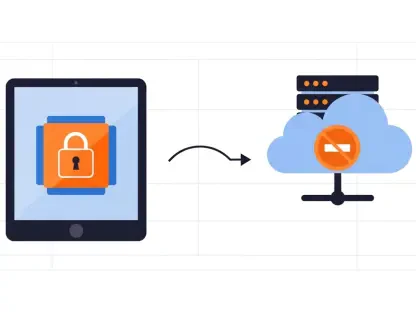The adtech industry experienced a remarkable surge in mergers and acquisitions (M&As) in 2024, reflecting a significant rebound in the digital advertising sector. This recovery, characterized by noteworthy growth, was driven by tech giants such as Google, Meta, and Snap, which saw impressive increases in ad revenues. Specifically, Google’s ad revenue grew by over 10%, Meta’s sales jumped 19%, while Snap’s ad revenue surged by 15%, mainly due to advancements in augmented reality and artificial intelligence. This resurgence in digital ad spending catalyzed a 118% year-over-year increase in M&A activities within the adtech, martech, and digital content industries, marking the highest level recorded since the first half of 2022. As companies aim to meet the escalating demand for innovative technologies, they strategically acquire firms equipped with unique first-party datasets, enhanced AI capabilities, and proficiencies in emerging channels like connected TV and retail media.
First-Party Data: The Cornerstone of Future Advertising Strategies
One of the most significant trends reshaping the adtech landscape in 2025 is the shift towards first-party data, as third-party cookies are phased out and privacy regulations such as GDPR and CCPA undergo continuous evolution. Brands are expected to heavily invest in systems designed to collect first-party data directly from consumers through loyalty programs, mobile applications, and other methods. This move aims to build detailed customer profiles that provide deeper insights into consumer behavior and preferences. The increasing reliance on first-party data is likely to foster new partnerships between brands and publishers, who will share anonymized data in compliance with stringent privacy frameworks to ensure consumer trust and data security.
Alongside the emphasis on first-party data, many companies are exploring innovative ways to harness this valuable resource. For instance, organizations are developing robust Customer Data Platforms (CDPs) that aggregate and analyze first-party data to optimize marketing strategies. These platforms enable brands to deliver highly personalized and relevant advertising experiences, ultimately driving better customer engagement and conversion rates. As third-party cookies become obsolete, the importance of building, maintaining, and utilizing first-party data will only grow, making it a critical aspect of future advertising strategies.
Artificial Intelligence: Transforming Adtech Through Enhanced Analytics and Personalization
Artificial intelligence (AI) continues to play a transformative role in the adtech industry, offering unprecedented opportunities to optimize marketing strategies, enhance personalization, and boost transparency in ad spending. AI-powered technologies are anticipated to deliver sophisticated analytics, enabling better audience segmentation and predictive algorithms that significantly enhance ad performance. With the ability to analyze vast amounts of data in real-time, AI systems help advertisers make more informed decisions, ensuring that their campaigns are effectively targeting the right audiences.
Furthermore, cross-platform campaigns that utilize multiple touchpoints are expected to streamline user journeys, aided by integrated reporting tools that provide holistic campaign optimization. This comprehensive approach ensures that brands can track and measure the success of their advertising efforts across different channels, allowing for continuous improvement and fine-tuning of their strategies. AI’s role in adtech is not limited to improving campaign performance; it also extends to enhancing user experiences with dynamic, personalized content that resonates with individual preferences and behaviors.
Strategic Acquisitions Driving Innovation and Growth
The surge in M&A activities within the adtech sector underscores a maturing industry with immense potential for innovation and growth. Companies are strategically acquiring firms that offer unique capabilities, such as advanced AI technologies, proprietary datasets, and expertise in emerging channels like connected TV and retail media. These acquisitions enable organizations to stay ahead of the competition by integrating cutting-edge technologies and expanding their service offerings to meet the evolving needs of their clients. The collaboration between established industry players and innovative startups fosters a dynamic ecosystem that continually pushes the boundaries of what is possible in digital advertising.
The demand for tools that align data insights with business strategies is also on the rise, prompting adtech platforms to develop cohesive dashboards that facilitate better communication between brands, agencies, and publishers. By ensuring that ad campaigns are data-driven and aligned with overarching business objectives, these platforms enable more effective and efficient marketing efforts. As the industry continues to evolve, the focus on strategic acquisitions will remain a key driver of growth and innovation, allowing companies to unlock new opportunities and deliver superior value to their clients.
The Future of Adtech: Embracing Change and Innovation
Artificial intelligence (AI) continues to revolutionize the adtech industry, presenting unmatched opportunities to refine marketing strategies, enhance personalization, and promote transparency in advertising expenditures. AI-powered technologies are anticipated to offer advanced analytics, facilitating improved audience segmentation and predictive algorithms that greatly boost ad performance. With the capacity to analyze vast data in real-time, AI systems enable advertisers to make well-informed decisions, ensuring their campaigns effectively target the appropriate audiences.
Additionally, cross-platform campaigns using multiple touchpoints are expected to simplify user journeys, supported by integrated reporting tools that provide comprehensive campaign optimization. This holistic approach allows brands to track and measure the success of their advertising efforts across various channels, fostering continuous improvement and strategy refinement. AI’s role in adtech isn’t confined to boosting campaign performance; it also enhances user experiences by delivering dynamic, personalized content that aligns with individual preferences and behaviors.









